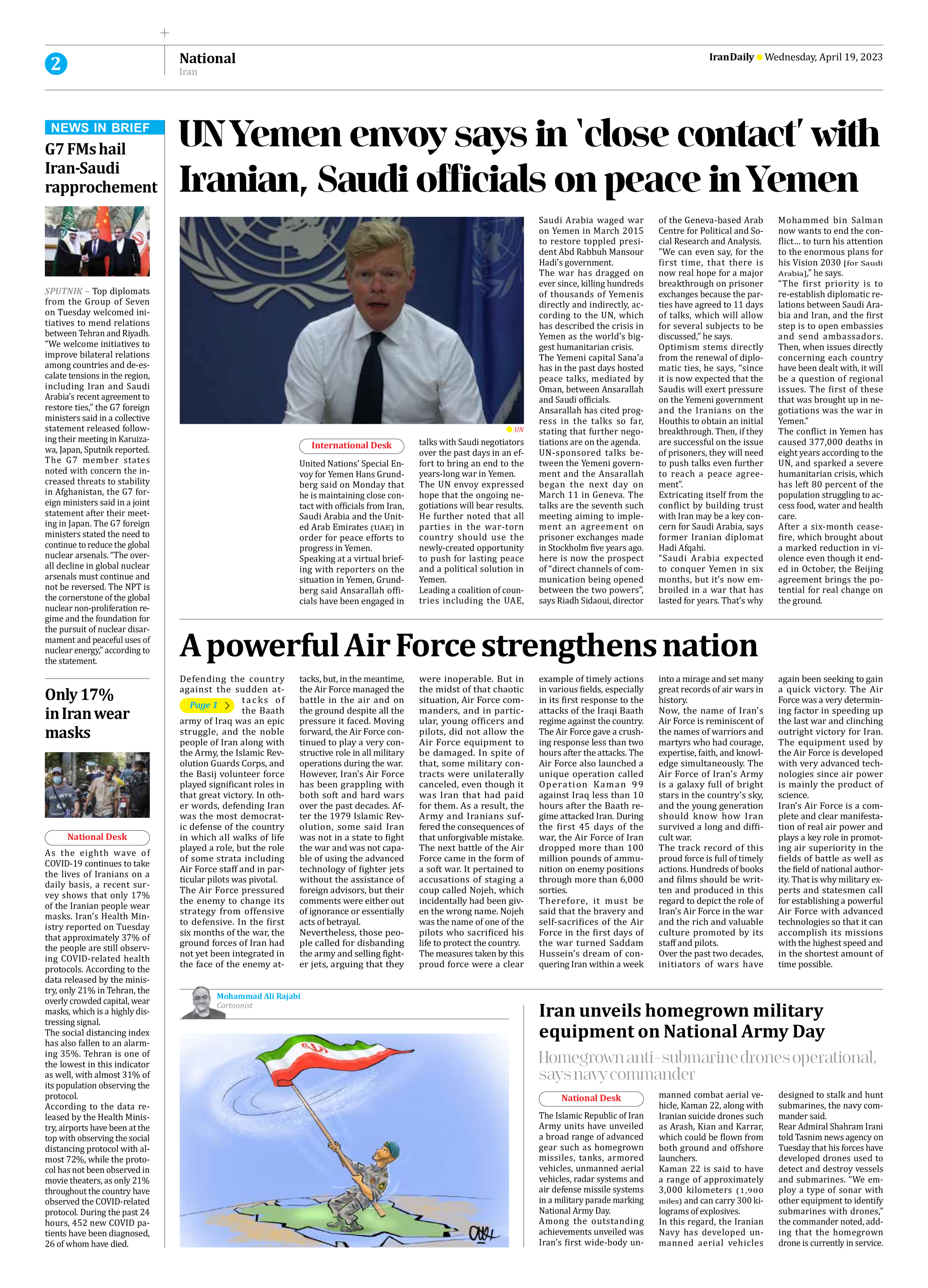
UN Yemen envoy says in ‘close contact’ with Iranian, Saudi officials on peace in Yemen
United Nations’ Special Envoy for Yemen Hans Grundberg said on Monday that he is maintaining close contact with officials from Iran, Saudi Arabia and the United Arab Emirates (UAE) in order for peace efforts to progress in Yemen.
Speaking at a virtual briefing with reporters on the situation in Yemen, Grundberg said Ansarallah officials have been engaged in talks with Saudi negotiators over the past days in an effort to bring an end to the years-long war in Yemen.
The UN envoy expressed hope that the ongoing negotiations will bear results.
He further noted that all parties in the war-torn country should use the newly-created opportunity to push for lasting peace and a political solution in Yemen.
Leading a coalition of countries including the UAE, Saudi Arabia waged war on Yemen in March 2015 to restore toppled president Abd Rabbuh Mansour Hadi’s government.
The war has dragged on ever since, killing hundreds of thousands of Yemenis directly and indirectly, according to the UN, which has described the crisis in Yemen as the world’s biggest humanitarian crisis.
The Yemeni capital Sana’a has in the past days hosted peace talks, mediated by Oman, between Ansarallah and Saudi officials.
Ansarallah has cited progress in the talks so far, stating that further negotiations are on the agenda.
UN-sponsored talks between the Yemeni government and the Ansarallah began the next day on March 11 in Geneva. The talks are the seventh such meeting aiming to implement an agreement on prisoner exchanges made in Stockholm five years ago.
here is now the prospect of “direct channels of communication being opened between the two powers”, says Riadh Sidaoui, director of the Geneva-based Arab Centre for Political and Social Research and Analysis.
”We can even say, for the first time, that there is now real hope for a major breakthrough on prisoner exchanges because the parties have agreed to 11 days of talks, which will allow for several subjects to be discussed,” he says.
Optimism stems directly from the renewal of diplomatic ties, he says, “since it is now expected that the Saudis will exert pressure on the Yemeni government and the Iranians on the Houthis to obtain an initial breakthrough. Then, if they are successful on the issue of prisoners, they will need to push talks even further to reach a peace agreement”.
Extricating itself from the conflict by building trust with Iran may be a key concern for Saudi Arabia, says former Iranian diplomat Hadi Afqahi.
“Saudi Arabia expected to conquer Yemen in six months, but it’s now embroiled in a war that has lasted for years. That’s why Mohammed bin Salman now wants to end the conflict… to turn his attention to the enormous plans for his Vision 2030 [for Saudi Arabia],” he says.
“The first priority is to re-establish diplomatic relations between Saudi Arabia and Iran, and the first step is to open embassies and send ambassadors. Then, when issues directly concerning each country have been dealt with, it will be a question of regional issues. The first of these that was brought up in negotiations was the war in Yemen.”
The conflict in Yemen has caused 377,000 deaths in eight years according to the UN, and sparked a severe humanitarian crisis, which has left 80 percent of the population struggling to access food, water and health care.
After a six-month ceasefire, which brought about a marked reduction in violence even though it ended in October, the Beijing agreement brings the potential for real change on the ground.







